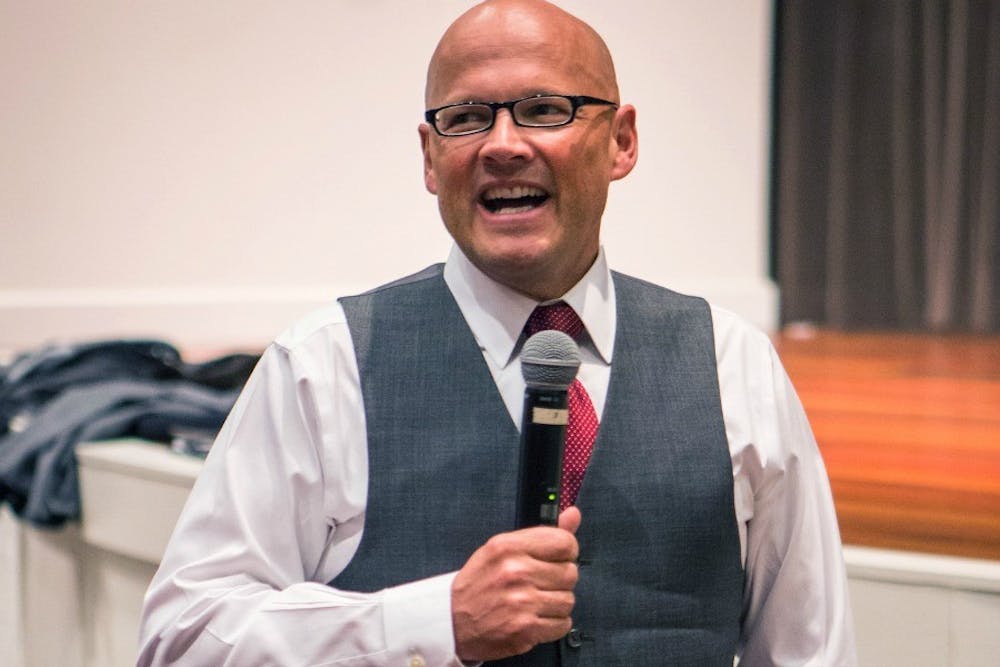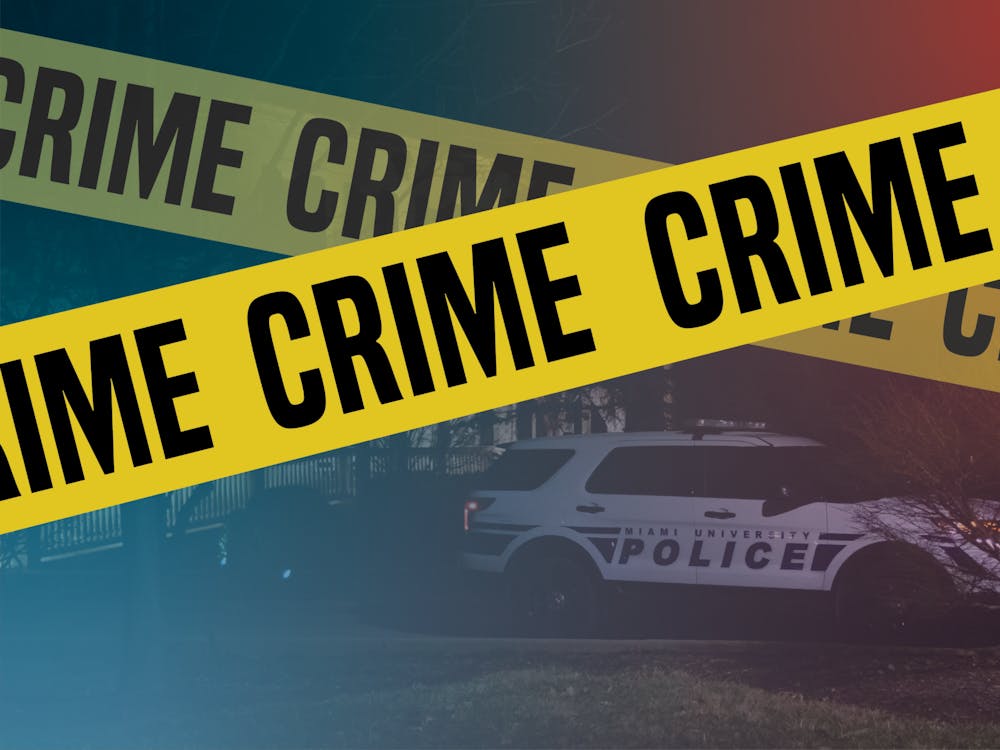Miami University faculty and even President Greg Crawford have made themselves available as writers and sources for national media and city newspapers across the country in a formal effort to position faculty as nationally recognized experts in their fields.
The placement strategy has landed professors’ and administrators’ quotes and writing in national outlets including CBS News Radio, Inside Higher Ed and Forbes, as well as local media from the Cincinnati Enquirer to the Dayton Daily News, said Vice President and Chief Marketing and Communications Officer Jamie Hunt.
“We have a great thing here at Miami,” Hunt said. “We’re an excellent institution, and we want to have broader recognition of that across the country. Part of the strategy for doing that is getting our faculty placed as experts in national media outlets or large metro media outlets.”
Since the start of the semester, Crawford has written about how to educate entrepreneurs for Forbes and been quoted by the Cincinnati Enquirer. He also collaborated with Doug Lankford, chief of the Miami Tribe of Oklahoma, to write about retiring Native American mascots for Inside Higher Ed.
“I write as part of a concerted effort to raise the profile of Miami University and higher education on a national level,” Crawford wrote in an email to The Miami Student.
Crawford said he takes careful consideration in what he chooses to write.
“While sometimes there are pieces that just flow from idea to manuscript, often most pieces I write take time and patience,” Crawford wrote. “I bounce ideas off of people about topics — what do they find interesting? What do they think is important? What is something not talked about that should be talked about?”
Rodney Coates, a critical race and ethnic studies professor, has also been credited for editorials, research and poems. He started writing in college, and has since been cited in the Cincinnati Enquirer, CNBC, the Hamilton Post and SAGE Press.
The university typically reaches out to Coates with questions regarding his profession, which led him to write about the border patrol agents and the humanitarian crisis in Texas.
“I edit my own work,” Coates said. “I send [my work] out blatantly and sometimes target a particular publication because I feel that it’s more in line with their audience and their editorial policy.”
Coates said his ideas come from trends he sees in both the academic world and current events.
“I do research in both current news and current events but also in scholarly sources,” Coates said. “Over time, I wind up seeing some trends or things that bother me and I’ll write an editorial about it.”
Enjoy what you're reading?
Signup for our newsletter
Coates said his experience as both a professor and a writer benefits Miami and its goal of publishing professors.
“Sometimes Miami will be contacted by our news bureau and a news source,” Coates said. “They will say, ‘Hey, we’ve got an issue dealing with blank. Do you have any experts on this?’ and those faculty who identify themselves by their content area will be contacted.”
A majority of placements involve staff being interviewed as expert sources rather than writing about topics themselves. In recent weeks, reporters have quoted Miami faculty on topics from how video games impact mental health to nursing home staff shortages.
Hunt said the university relies on the online service ProfNet to connect professors to reporters. When a reporter needs an expert in a specific field, they post a pitch and a deadline. Then, Hunt and her team follow up with Miami faculty.
“We look at our faculty list of people and propose one of our faculty experts by spelling out what that person's expertise is, maybe linking to other interviews that they've done,” Hunt said. “And then, hopefully, the reporter will contact us back.”
Not every faculty member knows how to speak to the press, though. That’s where Jessica Rivinius, director of university news and communications, comes in.
Rivinius hosts workshops with faculty members interested in sharing their research with the public. She said she focuses her past experiences as a journalist to explain what reporters look for in interviews.
“I … give them a look at what it’s like to be a journalist,” Rivinius said. “What are [journalists] facing? Multiple deadlines and trying to get things in media formats. So I try to get them thinking about that.”
When faculty go into interviews, Rivinius said she recommends they write down three points they want to get across. She has them practice during the workshop and encourages researchers to avoid technical jargon when speaking to reporters.
“We talk about some words previous researchers have used in media interviews,” Rivinius said. “You can find another word for bifurcate or milieu. Just talk like a regular person.”
Reporters don’t always reach out to experts first. Rivinius said the university has pitched more than 20 faculty members as experts on emerging topics since March, ranging from supply chain shortages to the Afghanistan withdrawal.
Rivinius said the expert pitches have led to more than 430 placements. When a large media organization like the Associated Press runs a story, smaller outlets across the country pick it up and run it, leading to higher exposure.
“Everyone is trying to get their voices out and be showcased as thought leaders,” Rivinius said. “It’s good public relations … I want to help elevate [faculty] voices and their research. I want to help tell their story, whatever it may be, whatever they talk about or research and find interesting.”




